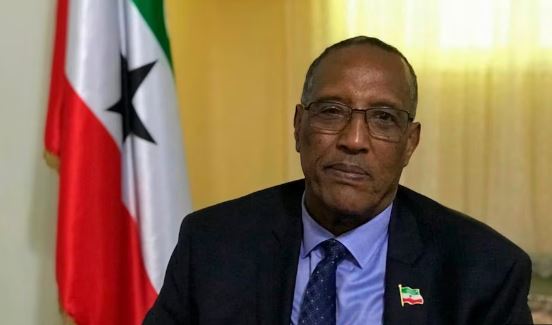Somalia’s Stance on Ethiopia-Somaliland Port Deal: A Question of Sovereignty and Aggression

In a significant geopolitical development, Somalia has rejected a recent agreement between Ethiopia and the breakaway region of Somaliland. The pact, signed by Ethiopian Prime Minister Abiy Ahmed and Somaliland leader Muse Bihi Abdi, permits Ethiopia to use the port of Berbera, located on the Gulf of Aden with access to the Red Sea. In return, Ethiopia is expected to recognize Somaliland as an independent nation, a move that would mark the first country to do so.
The Roots of Discontent
Somalia’s government, which views Somaliland as part of its territory, has responded strongly to this agreement, calling it an “act of aggression” and a violation of its sovereignty. This reaction underscores the longstanding territorial dispute between Somalia and Somaliland, a region that declared autonomy from Somalia in 1991 but has not gained widespread international recognition. The Somali cabinet, following an emergency meeting, declared the agreement “null and void,” emphasizing that no external power has the authority to negotiate terms involving Somali territory.
Regional Implications
Ethiopia’s deal with Somaliland, which includes leasing 20 km around the port of Berbera for 50 years for both navy and commercial purposes, is seen as a strategic move to secure sea access for the landlocked country. Ethiopia’s reliance on Djibouti for most of its maritime trade has been a point of contention, and this agreement with Somaliland is viewed as a significant step toward diversifying its access to seaports.
Somalia’s Diplomatic Response
In a strong diplomatic gesture, Somalia has recalled its ambassador to Ethiopia for deliberations over the deal. Somali President Hassan Sheikh Mohamud addressed the parliament, reiterating the country’s position that Somaliland remains a part of Somalia and dismissing any claims of recognition by Ethiopia. Somalia has also called for the United Nations Security Council and the African Union to discuss the issue, highlighting its potential impact on regional stability.
The Stance of Somaliland and Ethiopia
Somaliland’s interior minister, Mohamed Kahin, has called for Somalia to apologize for claiming that Somaliland is part of its territory. From Ethiopia’s perspective, the agreement represents a crucial step in asserting its right to access the Red Sea, an ambition that Prime Minister Abiy Ahmed has previously described as an “existential issue” for the country.
Looking Ahead
The unfolding situation reflects the complex dynamics of the Horn of Africa, where territorial integrity, diplomatic relations, and access to critical maritime routes are intertwined. The responses of regional and international actors to this agreement will be crucial in determining the future course of relations between Somalia, Somaliland, and Ethiopia.





